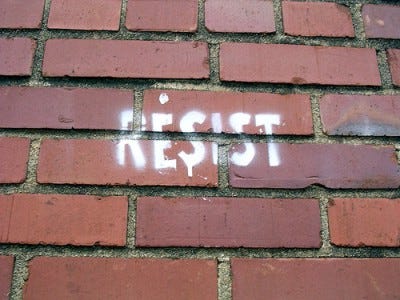A few days ago on Substack, I Noted that I will devote the remaining time leading to Election Day to writing for American Samizdat. All going well, with a Kamala Harris victory in the election over Trump (who warrants, long past, only the one-word, last name identifier historically common to tyrants) — that is to say, a victory of liberal democracy over the forces of corrupt, authoritarian decline —American Samizdat will soon end and Homo Vitruvius return as the sole home of my Substack writing. Even in democratic victory, Trumpian-GOP attempts to thwart the election results might delay the transition. The tragedy of an actual Trump victory will, I Noted, transition American Samizdat into a resistance phase.
“Resistance” is a word that has come over the course of history, and especially now, to carry a lot of cheapened cachet. It is, in some human and political circles, a romanticized and glorified term. Resistance to tyranny rises in the imagination as hallowed ground. “Resistance” is…
Keep reading with a 7-day free trial
Subscribe to Homo Vitruvius by A. Jay Adler to keep reading this post and get 7 days of free access to the full post archives.





